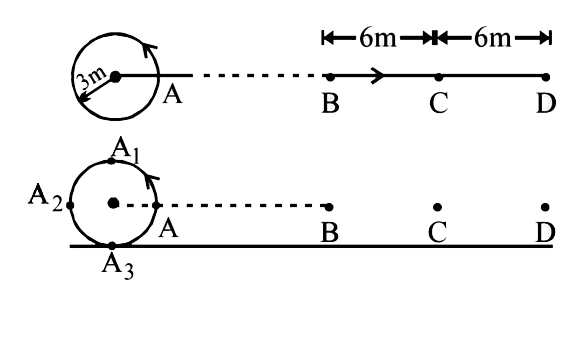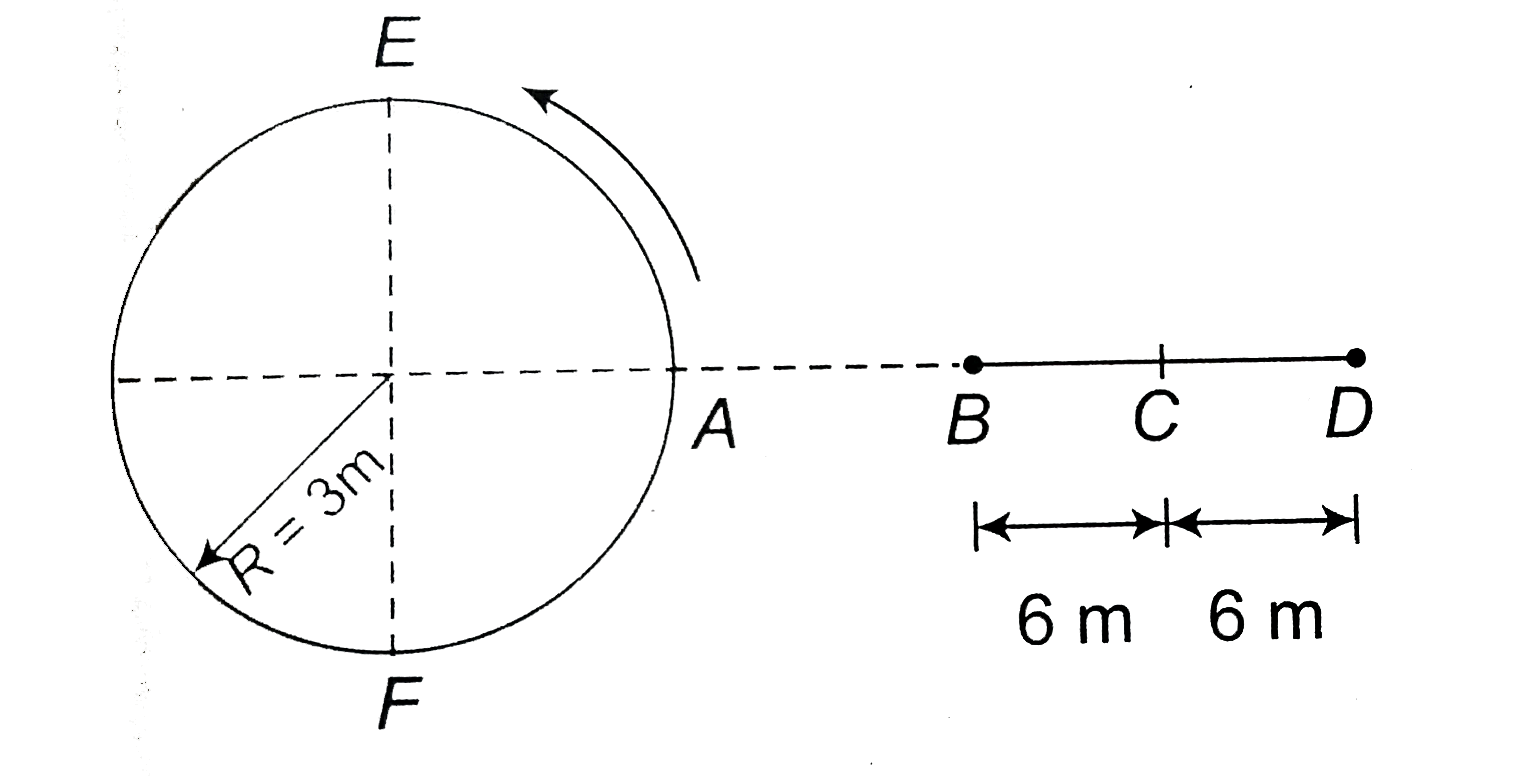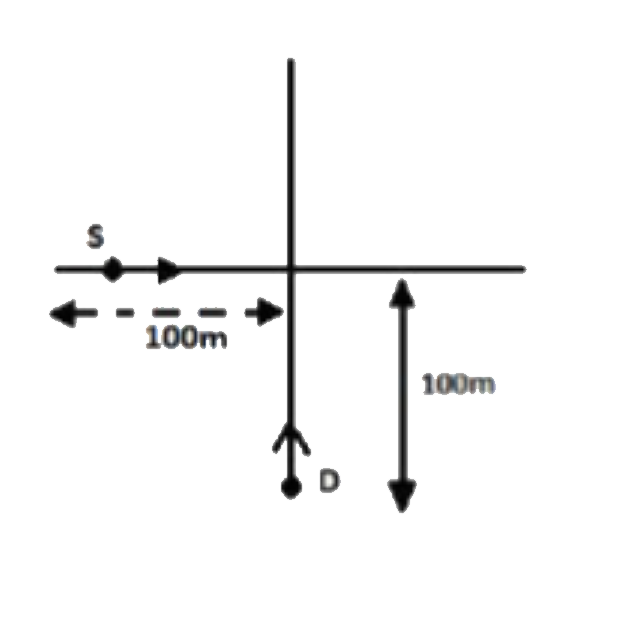A source of sound is moving along a circular orbit of radius 3meter with an angular velocity of 10rad/s. A sound detector located far away from the source is executing linear simple harmonic motion along the line BD with an amplitude BC=CD=6meters. The frequency of oscillation of the detector is 5π per second. The source is at the point A when the detector is at the point B. If the source emits a continuous sound wave of frequency 340Hz, Find the maximum and the minimum frequencies recorded by the detector.


Speed of source: vs=Rω=3×10=30m/s
Maximum speed of detector will be when it is in mean position i.e. at C
Maximum speed of detector
v'=aω,=6×2π×π5=60m/s
Speed of sound v=330m/s
Time period of circular motion T=2πω=π5s
Time period of SHM T'=2πω'=2π2π×5π=π5s
The frequency received by detector is minimum when source and detector recede each other (i.e., source at E and detector at C after time T/4, respectively)
f'min=f(v−v'v+vs)=(340)(330+60330−30)
=255Hz
(b) The frequency received by detector is maximum when source and detector approach each other (i.e., source is at F and detector at C after time 3T/4 and 3T'/4, respectively)
f'max=f(v+v'v−vs)=(340)(330+60330−30)
=442Hz
Topper's Solved these Questions
Similar Questions
A source of sound of frequency 256 Hz is rotating in a circle of radius 3 m with angular speed of 20 rad/s. A listener is standing at rest along the line of centre of the circle. Under which position of the source of sound the listener will hear sound of
(a) maximum frequency
(b) minimum frequency
(c) same frequency as the frequency of source.
View SolutionA small source of sound oscillates in simple harmonic motion with an amplitude of 17 cm. A detector is placed along the line of motion of the source. The source emits a sound of frequency 800 Hz which travels at a speed of 340ms−1 If the width of the frequency band detected by the detector is 8 Hz, find the time period of the source.
View Solution
Knowledge Check
The figure shows the location of a source and detector at time t = 0. The source and detector are moving with velocities vs=5ˆims−1andvD=10ˆjms−1 respectively . The frequency of signals received by the detector at the moment when the source cros the origin is (the frequency of the source is 100 Hz . Velocity bof sound 330ms−1 .)
 A97 HzB47 HzC90 HzD60 Hz
A97 HzB47 HzC90 HzD60 HzA source of sound moves towards a listener with a velocity equal to that of sound. If the source emits n waves per second, then the listener moving away from the source with the same velocity receives
An waves per secB2n waves per secCzero waves per secDn/2A source of sound is moving with a uniform speed along a circle. The frequency of sound as heard by listener stationed all the centre of the path
AincreasesBdecreasesCremains the sameDmay increase and decrease alternately
A source of sound emitting a 1200 Hz note travels along a straight line at a speed of 170ms−1. A detector is placed at a distance of 200 m from the line of motion of the source. (a) Find the frequency of sound received by the detector at the instant when the source gets closest to it. (b) Find the distance between the source and the detector at the instant it detects the frequency 1200 Hz. Velocity of sound in air=340ms−1.
View SolutionA stationary motion detector sends sound waves of frequency 3.00 MHz toward a truck approaching at a speed of 61.0 m/s. What is the frequency of the waves reflected back to the detector?
View SolutionA source of sound emitting a note of frequency 200 Hz moves towards an observer with a velocity v equal to the velocity of sound. If the observer also moves away from the source with the same velocity v, the apparent frequency heard by the observer is
View SolutionA body is executing simple harmonic motion with an angular frequency s rad/2 . The velocity of the body at 20 mm displacement, when the amplitude of motion is 60 mm , is
View Solutionif the speed of a sound source is equal to the speed fo sound and the source is moving away from the observer, then the ratio of apparent frequency to the original frequency is
View Solution
